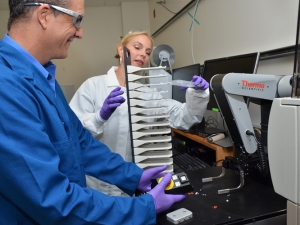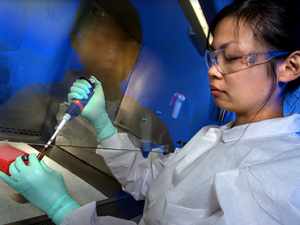

Research Expertise and Interest
public health, genetic epidemiology, human genetics, autoimmune diseases, Multiple Sclerosis, systemic lupus erythematosus, rheumatoid arthritis, epigenetics, genomics, computational biology
Research Description
Lisa Barcellos received her PhD in Immunology (emphasis Immunogenetics)and MPH in Epidemiology from UC Berkeley. She trained as a postdoctoral fellow in genetic epidemiology at UC San Francisco. She is a genetic epidemiologist specializing in diseases of the immune system and is working to identify genetic factors that predispose people to autoimmune diseases and that modulate disease expression and clinical progression.
Most of her research to date has centered on multiple sclerosis (MS). She is collaborating with other scientists at Kaiser Permanente Division of Research, Kaiser Permanente Southern California and UC San Francisco Department of Neurology. She and colleagues at UC San Francisco Department of Medicine are also leading studies focused on systemic lupus erythematosus, rheumatoid arthritis, and other autoimmune conditions.
In addition to genetics, genomics and epigenetic studies, Barcellos is also investigating environmental exposures, such as smoking and obesity, and maternal-child immunogenetic relationships for involvement in disease risk. “ I ’d say in the last ten years, it ’s become even more apparent that environment is playing a huge role in autoimmune diseases, as well as other common, complex disorders like diabetes, heart disease, and mental illness,” she says. “Studies in genetic epidemiology need to incorporate that information.”

